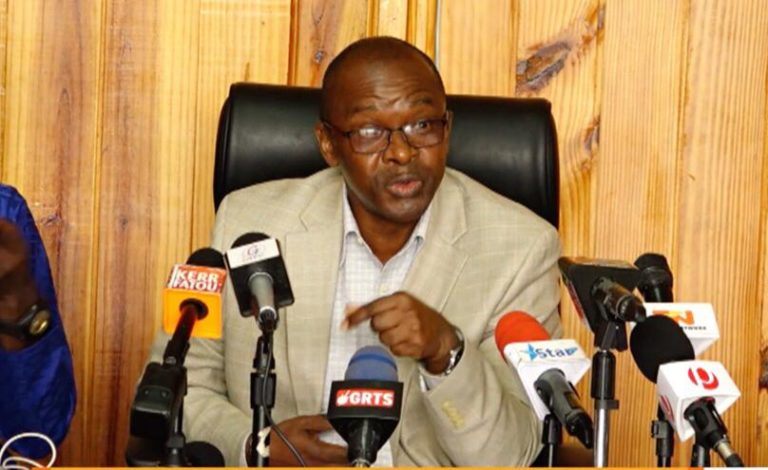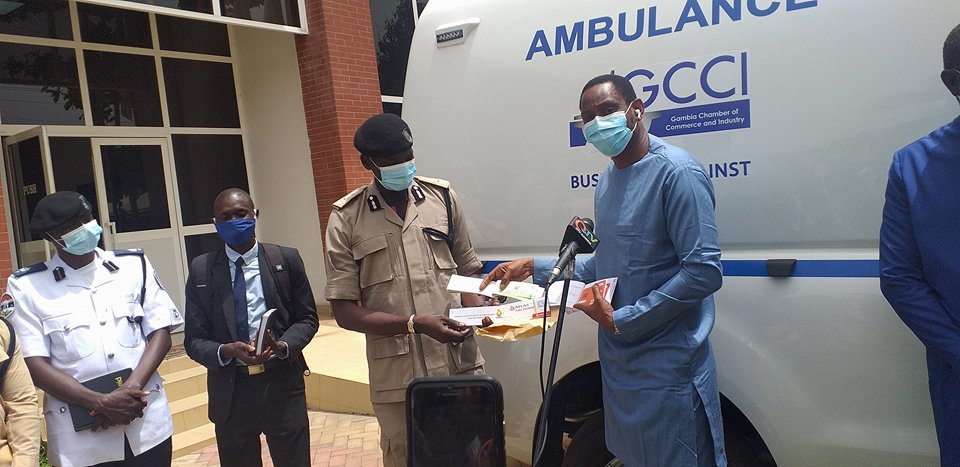By Annette Camara
“We are not happy with the level of inclusion or involvement in the process (transitional justice processes); we are usually not involved unless there is a workshop or sensitisation and that is not inclusion,” said Fatou, a victim of sexual violence during the regime of ex-President Yahya Jammeh.
Not her real name, Fatou gave testimony of her ordeal at the Truth Reconciliation and Reparation Commission (TRRC), one of the transitional justice mechanisms set up by the government to address the legacy of widespread human rights violations committed by the Jammeh regime that was in power from 1994 to 2016.
The TRRC was established to investigate and establish an impartial historical record of the nature, causes, and extent of violations and abuses of human rights committed during the period. It provided victims with an opportunity to relate their accounts of abuses they suffered, promote non-recurrence, and, in appropriate cases and depending on available resources, grant reparations to victims.
After over 871 days of testimony, starting on 7th January 2019, three hundred and ninety-two (392) witnesses testified before the TRRC giving evidence of human rights violations, including arbitrary arrests, unlawful detention, unlawful killings, torture, enforced disappearances, sexual and gender-based violence, inhuman and degrading treatment, witch-hunting, fake HIV/AIDS treatment and general widespread abuse of public office.
According to TRRC DIGEST, a publication of ANEKED, out of the 392 that testified, 79 were females, about 20%, despite women making up more than 50% of the population.
Of the 79 women that testified, 63 were all victims mainly of sexual and gender-based violence (sexual assault, sexual abuse, sexual exploitation); forced abortion; forced marriage; torture, including rape as a weapon of torture; forced labour (including sex trafficking).
The none or rather, unequal inclusion of women in the transitional justice processes, especially the TRRC processes, started way before the testimonies. For example, of the 11 commissioners of the TRRC, only 4 were women.
Imran Darbo, a former staff of the Ministry of Justice who was involved at different stages in the TRRC processes, said that even though Gambia’s TRRC was based on lessons from other countries, it did not succeed in women’s inclusion “because women were not prioritised”.
Mr Darboe however said women were involved in the implementation processes of TRRC.
“They were included as deputies but this does not help in decision-making,” he affirmed.“The majority of key departments of the TRRC were headed by men and assisted by women, so when it comes to main decisions, women don’t decide.”
The TRRC has a Gender Unit that consists of women only. On the contrary, the Communication and Outreach Unit members were all men, and there were no collaborations between the two units.
Not Adequately Addressed
Muhammed Sandeng, son of the late Solo Sandeng who was arrested and tortured to death during the 14th April 2016 peaceful protest, said Gambia’s transitional justice processes generally “is not as inclusive as expected”.
“In the inception stage, consultations were made; few people like me were involved but our involvement was never in decision-making processes nor during policy formulation,” he lamented.
For the TRRC specifically, the young Sandeng said it did not “adequately address” youth and women issues.
“The inclusion of women goes far beyond having women and gender unit. For example, women’s wishes and aspirations were not adequately captured in the reparations processes otherwise some of the problems that are raised now would have been avoided. So it is a lip service inclusion for youths and women,” he said.
“The government has taken the decision, for example, to release junglars but the victims did not know about it.”
Involved?
Mr Adama Jallow, a national coordinator of Victim’sCentre claimed that “women have been involved in all our advocacies and seeking for justice” as part of theTRRC.
The Victim’s Center is an institution that looks at all categories of victims of the regime of Yahha Jammeh, including women.
“We wrote a position paper, and victims are involved. Although, many of the victims are not happy with the reparations, “Mr allow said.
Mr John Charles Njie, founder of the Transitional Justice Working Group who had worked closely with the TRRC, a good number of women should be part of the decision-making process.
General Inclusion of Women
Despite constitutional protection (section 28), the ratification of international treaties, the enactment of Women’s Act in 2010, and the establishment of the Women’s Bureau in 1980, and the Ministry of Gender, and Social welfare in 2019, Mr Sandeng said “still women continue to face marginalisation”.
Mariama Jobarteh, a Researcher, gender activist, and founder of ‘Fankanta’ said women’s inclusion is a national problem at all levels of The Gambia.
In The Gambia, women represent more than half of the population (50.5%), and the majority (58%) of all Gambian registered voters are women, “yet all the arenas in the country are largely dominated by men including politics”.
Out of the 58 members of the National Assembly members, only five are women. At the cabinet level, there are only four women among 23 ministers. At the local leadership level, women constitute only eight out of the 120 councilors in the country.
Nenneh Freda Gomez, a founding member of the Citizen’s Alliance party, and former spokesperson of the party who had contested for the position of NAM in Latrikunda Yiringanya believe women can turn the table around and deplores the situation of Gambian women being excluded from politics.
“Women are not rightly included in the decision-making process. We are in this situation because we are made to women are never factored in when men sit to plan and make political decisions,” she said.
Well, she said, the government, the victims’ center, and other CSOs involved in the transitional justice process said there is overall inclusion of victims in the decision-making process, as well prioritising of female victims. “Is this the reality for victims and women?” she asked rhetorically.




